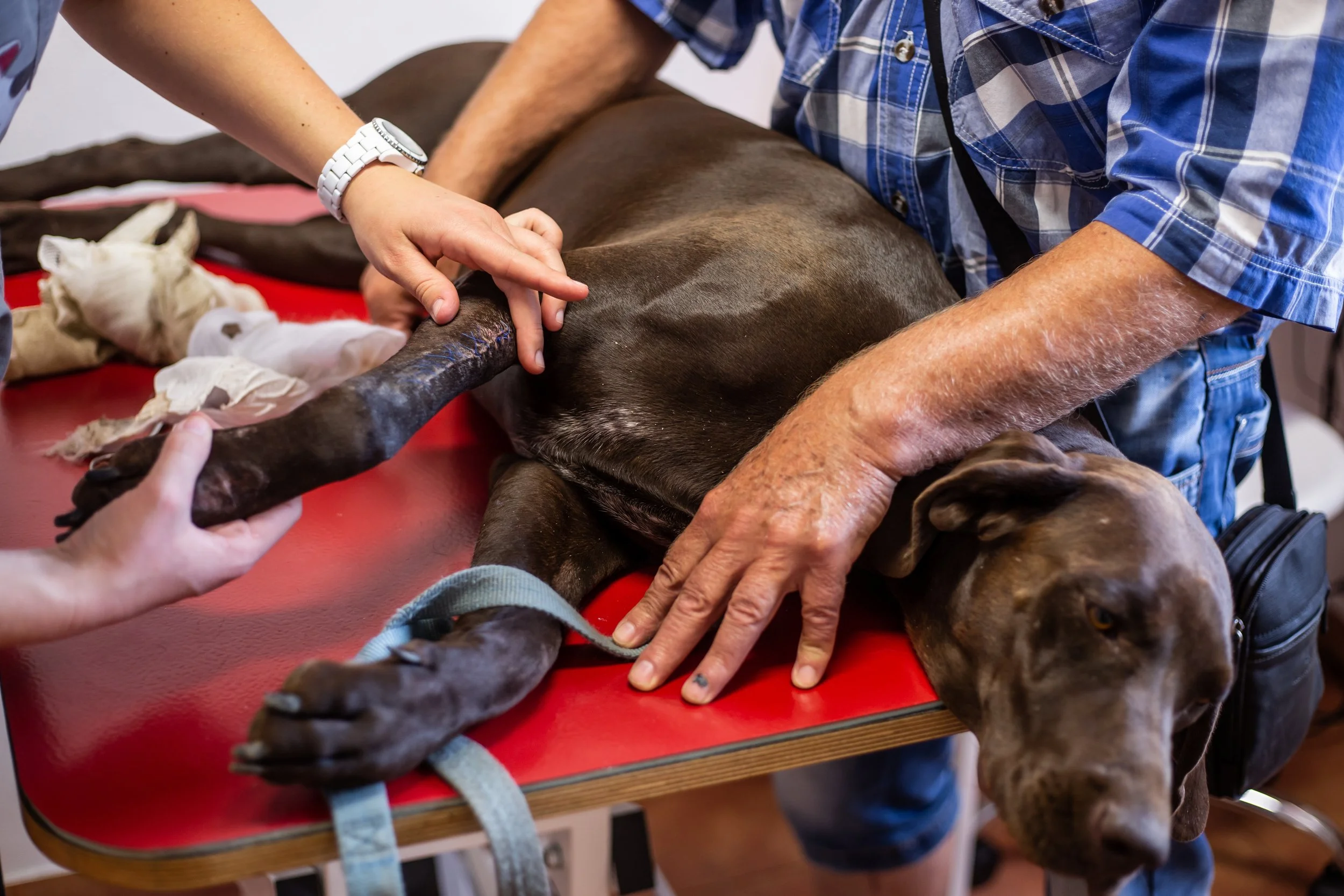Benefits of MRI Scans for Dogs
What is an MRI Scan for Dogs?
Magnetic Resonance Imaging (MRI) scans are a non-invasive imaging technique that helps diagnose your pet’s underlying health problem. Canine MRI scans generate detailed images of your pet’s body to help locate the root of the problem. MRIs have been used to help diagnose health issues in humans since the 80’s and have become widely used by veterinarians in the most recent years. If your dog is showing symptoms of pain or behavioral changes you just can’t seem to find the cause of, an MRI scan may be the best next step. Learn more about MRI scans for dogs and what to expect.
How An MRI Scan Can Help Diagnose Your Pet
As a pet owner, you can probably tell when your fur baby isn’t feeling well or is displaying discomfort. However, since we’re not able to ask them exactly what hurts or what’s bothering them, it can be difficult to understand what exactly is going on without diagnostic testing. A dog MRI scan can allow your veterinarian to evaluate the inside of your dog's body in a non-invasive way.
MRI scans can provide detailed images of your pet’s soft tissues, including their:
Brain
spinal cord
Ligaments
Tendons
abdominal organs
Canine MRI scans are often more helpful than X-rays or CT scans because of the level of detail they provide.
What MRI Scans Can Help Diagnose
Here are some common conditions MRI scans can help uncover in your four-legged best friend:
Neurological Issues
Brain Tumors: a dog MRI for the brain is incredibly useful in detecting brain tumors. These tumors can cause symptoms such as seizures, changes in behavior, and neurological deficits.
Spinal Cord Injuries or Diseases: Conditions like intervertebral disc disease (IVDD), herniated discs, or spinal cord inflammation can be diagnosed and evaluated with a canine MRI. This helps in determining the extent of damage and planning appropriate treatment.
Encephalitis or Meningitis: Infections or inflammations of the brain can be identified through canine MRI scans.
Orthopedic Problems
Cruciate Ligament Tears: MRI helps in assessing the severity of ligament tears in the knee joint, which can help determine whether your dog needs Tibial Tuberosity Advancement (TTA) or Tibial Plateau Leveling Osteotomy (TPLO) surgery as treatment.
Osteochondritis Dissecans (OCD): This condition involves abnormal development of bone and cartilage in joints. MRI is instrumental in diagnosing OCD and planning treatment.
Joint Diseases: Arthritis, hip dysplasia, elbow dysplasia, and other joint-related issues can be evaluated with MRI to determine the extent of damage and guide treatment options.
Soft Tissue Injuries
Muscle Tears: Tears or strains in muscles can be detected through MRI scans for dogs, aiding in appropriate treatment plans.
Tendon or Ligament Injuries: Injuries to structures like the Achilles tendon, cruciate ligaments, or collateral ligaments in the joints can be visualized with a canine MRI.
Internal Organ Evaluation:
Liver, Kidneys, and Spleen: MRI scans for dogs can help identify tumors, cysts, or other abnormalities in these organs.
Gastrointestinal Issues: In cases of chronic vomiting, diarrhea, or unexplained weight loss, MRI can provide insights into the condition of the gastrointestinal tract.
Cardiac Conditions: While less common, MRI can be used to evaluate the heart and detect conditions such as cardiomyopathy or congenital heart defects.
Pre-Surgical Planning:
Before complex surgeries, particularly those involving delicate structures like the brain or spine, MRI scans provide detailed maps of the area. This helps surgeons plan the procedure more effectively, reducing risks and improving outcomes.
Monitoring Disease Progression:
For chronic conditions like cancer, MRI scans may be used to monitor the progression of the disease, assess the effectiveness of treatments, and make adjustments to the treatment plan as needed.
Persistent Symptoms:
When a dog exhibits persistent or unexplained symptoms such as pain, lameness, neurological deficits, or behavioral changes, an MRI can be crucial in uncovering the underlying cause.
Finding Dog MRI Scans Near You
If you live in San Diego or in surrounding areas, MexiVet Express can help you find affordable options for dog MRIs. In the United States getting the diagnostic tests you need for your furry best friend can be costly. Canine MRIs in the U.S. typically range between $2,500 to $6,000, not including additional fees for other required services, such as a consultation. That’s why MexiVet Express works with experienced imaging specialists in Tijuana that can provide your pet with quality care at more affordable prices. MRI scans for dogs range between $1,400-$1,750, which includes a consultation, blood test and roundtrip transportation. If your furry friend needs diagnostic testing, contact MexiVet Express today to book an appointment with us.





